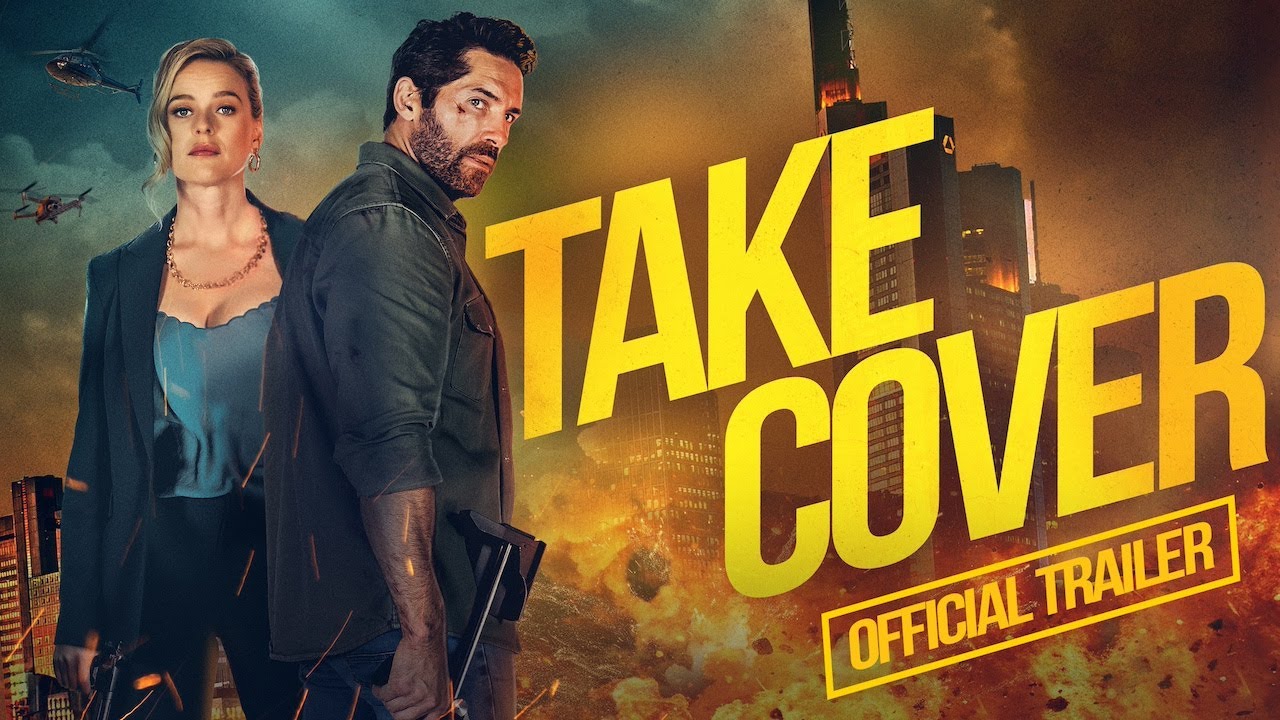Take Cover — the title suggests a mad dash and a hearty thud behind the nearest flaming oil drum, but what you get, with Scott Adkins at the prow, is something slyer and more self-aware. This is action cinema with a sly wink—half tactical ballet, half armchair philosophy, and more than a few swigs of that fizzy stuff called character charm.
Let’s get it clear up front: Adkins isn’t some smirking, fist-shaking pretender to the action movie throne. He packs a real arsenal—those kicks and grapples aren’t drip-fed by stunt doubles and camera wobbles. Watching him work, you’re reminded that half the “Hollywood tough guys” couldn’t punch their way through a tiramisu; Adkins, at least, has the bruises to prove he’s earned his seat at the table. True, Take Cover won’t go down as his bloodied magnum opus, but for ninety minutes or so, you’re in the hands of a man who knows how to deliver the goods—sometimes with fists, sometimes with that irrepressible, cocked-eyebrow charisma.
From bullet one, we’re dropped in amongst snipers and sidekicks: guns cock, crosshairs settle, and the air thickens with both danger and apologetic British sarcasm. Adkins’ Sam is the sniper with a conscience—or at least a tendency to sit on his rear and ruminate about fate, morality, and the moral knots you get into right after you’ve squeezed the trigger. At times, the movie seems less eager to get him shooting than to watch him stare thoughtfully at the middle distance. It’s as if Adkins, after years of leaping through windows, has decided it’s time the thinking man’s action hero made a return: our modern Hamlet, only with more firepower and a keener roundhouse.
But then the film hands us its true wild card. Enter Jack Parr as Ken, the spotter-slash-verbal slapstick king, whose banter with Adkins gives the whole enterprise a comic effervescence you’d pay extra for at the multiplex bar. Parr doesn’t just steal scenes; he cracks them open, fills them with that gambling-club mischief that lets you forget (almost) that you’re watching two men essentially playing chess with telescopic sights. Their chemistry—equal parts late-night pub and foxhole irony—leaves you almost wishing for a spinoff: Ken & Sam: 2 Snazzy 2 Snipe. The action simmers and sparks, but it’s the talk—clever, sometimes biting, always just-so—that keeps the movie feeling alive, and shame on the director for not giving Parr even more room to swing.
The rest of the supporting cast? Functional, occasionally delightful, and, at unexpected moments, genuinely funny. You can almost hear the pitch: “Tarantino meets a 3 a.m. ITV re-run, but with more snipers and fewer speeches about Madonna songs.” It works; the result is a ragged, agreeable stew of quips and crossfire.
But the pacing—ah, the pacing. If this film were a ride, you’d soon discover that the seatbelt is for the slow corners, the lulls where action stops and musing begins. There are long, patient stretches of character-building (read: Adkins seated, reflecting on life’s great sniper questions), punctuated by the next dance of bullets. Critics could moan there’s not enough blammo; I say the contemplative dips give ballast to the flares of violence, like whiskey sipped between rounds of bare-knuckle boxing.
And just when you’re starting to fear the next shootout will be preceded by a TED talk on existential malaise, the real surprise: genuine stakes. Morality and redemption sneak in the back door—not as sermons, but as personal puzzles twinned to each choice. Redemption, here, isn’t a prize so much as a headache; the film nudges, not bludgeons, towards the idea that maybe the guy holding the rifle isn’t the same one who pulls the trigger every time. And really, when was the last time you saw an action film that wanted to slow down and ask, “Have we done the right thing, or just the cool-looking thing?”
So, no, Take Cover won’t rearrange the action movie firmament, but it’s a cocktail worth ordering: part bruiser’s bravado, part bantering buddy movie, with an olive of midlife sniping regrets floating on top. Adkins is at his most likable—half action man, half armchair analyst—while Jack Parr threatens to run off with the whole show if you blink. Put it this way: had the film given Parr just a few more minutes to riff, we might have been talking about a comic-action minor classic.
In the end, Take Cover is a gentle, rowdy nudge, a reminder that backflips and bullet time don’t count for much if you can’t make us laugh, or feel a pang of mid-battle regret. And if you’re bored, well, that probably means you’ve never sat through a real stakeout: most of the job is waiting and thinking, and occasionally—just occasionally—kicking real ass.


